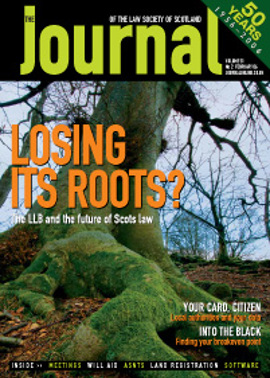That special something

Overseas assignments and mobile working arrangements are becoming increasingly commonplace. For employers and their advisers, when sending or hiring an employee to work abroad, consideration must be given to which country’s laws will apply to the contract. While it is possible to choose the law that should apply, this simple proposition is complicated by a number of qualifications.
For example, many employers do not realise that even where you choose the law of a particular country, e.g. where the employer is based, this can be overridden by more favourable protection provided in the mandatory rules of another country, e.g. that to which the employee has been posted.
One question which has proven difficult to answer in recent times is – can an employee temporarily posted to a “foreign” jurisdiction rely on the protection of her “home” state’s employment rights? This is a question addressed by the House of Lords in the three conjoined appeals of Serco Ltd v Lawson; Botham v Ministry of Defence; Crofts v Veta Ltd [2006] UKHL 3.
Over to the courts
Until its repeal in 1999, section 196 of the Employment Rights Act 1996 provided that an employee who ordinarily worked outside Great Britain would be excluded from the right to claim unfair dismissal. Interpretation of the section had proved far from straightforward and, as Lord Hoffmann rather sardonically put it in giving the only reasoned judgment of the Lords: “Parliament’s imaginative response… was to leave the matter entirely to the judges.”
So, faced with a now rather bleak statutory canvas, the Lords had to decide the cases of:
- Mr Lawson, a British national ordinarily domiciled in England, employed by Serco Ltd, a company registered in England and Wales, as a security supervisor on Ascension Island in the South Atlantic;
- Mr Botham, who was treated as resident in the UK for various purposes including taxation, even though he carried out his work at various Ministry of Defence bases in Germany; and
- Mr Crofts, who lived in the UK and was assigned a permanent “home base” of Heathrow, working for Veta Ltd, a wholly-owned subsidiary of Cathay Pacific Airways Ltd, both of which are registered in Hong Kong.
Two categories
Lord Hoffmann acknowledges that “section 196 having disappeared, something must be found to replace it”. In seeking to find that “something”, the parties to the appeal put forward a series of formulations varying from the rather imprecise test of whether an employment relationship was “forged and ultimately rooted” in Great Britain, to a more complex test based in part on requiring both parties to be present in Great Britain, or to owe allegiance to the Crown.
Lord Hoffmann chooses to make a distinction between those he describes as “expatriate” employees, and those who are “peripatetic”.
Dealing first with the straightforward decision in relation to the latter, a peripatetic employee is held to be able to rely on the unfair dismissal legislation if he is based in Great Britain. Having taken into account a number of factors, including the “basings policy” of Mr Crofts’ employer, the tribunal found that the centre of his operations was, “quite manifestly, London”. This was a conclusion their Lordships felt the tribunal was both entitled and correct to reach.
The “rather more difficult” question of expatriate employees was then considered. Lord Hoffmann gives two examples of the types of cases in which such an individual could bring a claim of unfair dismissal in a British employment tribunal. First, where the employee is posted abroad to work for a business conducted in Britain, and secondly, where the employee works in a “political or social British enclave abroad”. He finds that Mr Botham and Mr Lawson both fall within the latter category and that, therefore, all three individuals should be allowed to have the merits of their unfair dismissal claims heard.
Scope for argument
He accepts that there may well be other examples of situations where an employee can anchor a dismissal claim in Britain, but he has been unable to think of any. He goes on to surmise that if there are, they would have to have “equally strong connections with Great Britain and British employment law”.
How much further the Lords’ decision takes us in achieving clarity in this area is debatable. In terms of finding something to replace section 196, the Lords have set out no hard and fast rules. Instead, Lord Hoffmann has set out broad general principles which leave a great deal of scope for employees based abroad to bring employment tribunal proceedings in Britain. As such, although employer clients can be warned about the additional exposure they may face, it will remain difficult to pinpoint the boundaries of such exposure. Future case law will determine whether their Lordships have indeed found that special something.
Jane Fraser, Head of Employment, Pensions and Benefits, Maclay Murray & Spens
In this issue
- Legal aid in children's hearing referrals
- Still waters run deep
- Catch-up or patch-up?
- Legal science or law-lite?
- Heads above water
- Your name on file
- A welcome addition
- Another ***** meeting?
- A neglected asset
- Planning a year of action
- The Pagan mission
- A good case to read
- Jurisdiction: dispelling the myth
- That special something
- The art of cashing in
- Scottish Solicitors' Discipline Tribunal
- Website reviews
- Book reviews
- In on the Act
- Keeper's corner






